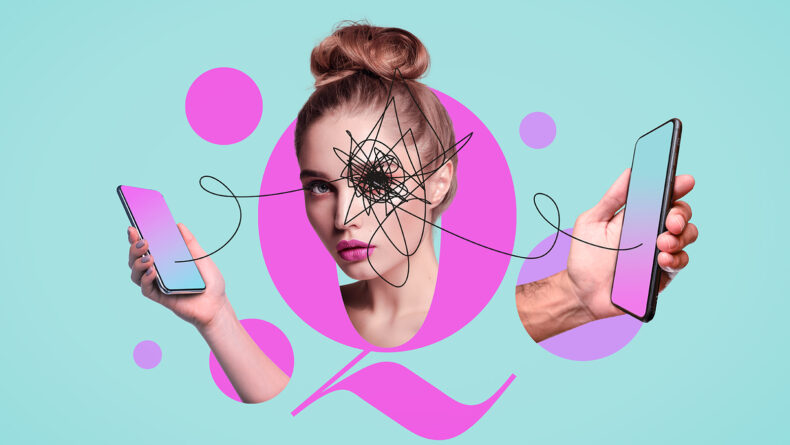Letters from Japan: ‘New Normal At The Office’
Ask Hilary: Questions From Readers Answered
Savvy Tokyo's resident "Love in Japan" columnist, Hilary Keyes, answers anonymous questions from readers on everything from dating in Japan to women’s health issues. Got a question you’d like to ask Hilary? Send it to askhilary@savvytokyo.com.
Dear Hilary,
I have a work-related question for you. Given the whole pandemic/new normal situation, what are the best rules to follow when it comes to giving omiyage to co-workers? Should we even bother given the risks?
—Proper Etiquette
Dear Proper Etiquette,
Excellent question! Given the gradual shift towards people traveling and working in the office again, there’s bound to be changes when it comes to omiyage as well. I did a little research and found some interesting information.
First things first, お土産 (omiyage; “souvenir”) as the kanji indicates, are meant to be local specialties or regional items purchased while traveling. In 99% of cases, omiyage should be edible and shareable amongst coworkers, although you can also purchase “extra” non-edible souvenirs for those you are closest to at your office.
They should be nicely wrapped, typically in the spare bags provided by the shop, so that your coworkers can appreciate where the item came from. If that isn’t possible, then they should be arranged in an “aesthetically pleasing manner so that colleagues will want to take their share and can enjoy the sentiment intended by the gift” (Japanese omiyage shop clerk, 50s).
omiyage should be edible and shareable amongst coworkers
Prior to the pandemic, if you hadn’t been traveling (either for work or in your personal life) you didn’t need to provide omiyage for your coworkers. During the start of the pandemic, when work from home took off and travel was mainly on a strict emergency basis, omiyage practically disappeared from offices. At the present, things are rather up in the air, no pun intended.
Generally speaking, the rule still applies that if you haven’t been traveling you don’t need to bring omiyage back to your office period. On the other hand, some individuals have taken to bringing “welcome back to the office” treats as their companies have reduced/ended work-from-home programs. Do you need to bring treats or omiyage when returning to work in an office?
The overwhelming majority say no. It’s not necessary and in fact at many companies presently it’s discouraged. “The risk of the food going bad, drawing insects and otherwise being wasted is too high” (Japanese office manager, 30s). “You never know how many people will be at the office at any given time so leaving food around just causes trouble for other people” (Japanese, 40s). “I don’t want souvenirs from someone else’s trip. They shouldn’t be traveling in the first place” (Japanese, 30s).
Omiyage are a way of socializing with your team.
That being said, some companies are using it as a means of fostering relationships between coworkers. Many people have been out of the office since 2020 and some have joined companies without having met any of their team in person before.
“Omiyage are a way of socializing with your team. They foster communication and encourage people to interact away from their computer screens” (Japanese, 50s). “I never get to travel for work or on my own so omiyage are something I look forward to” (Japanese, 40s). “I love traveling and buying omiyage is a big part of my travel budget. I’d be hurt if my coworkers rejected what I bought for them” (Japanese, 40s).
Despite the aforementioned health and sanitation risks, in some companies, it’s better for your image/career trajectory to provide omiyage than it is to skip the custom. If your company seems to encourage providing treats for your coworkers, your omiyage selections should follow a different set of rules than they did prior to 2020.
For health and safety reasons, items that have to be handled before being given out (such as cakes that require cutting) are a no-go. As are items that aren’t individually wrapped or portioned out, or those that cannot be sanitized thoroughly.
So, while terrible from an environmental perspective, if you must provide souvenirs, they should be individually wrapped in either plastic or wax paper and have a long shelf life. Most omiyage have expiration dates printed on the main outer packaging but these might not be found on the individual portions.
Whether you wish to participate in that aspect of Japanese office culture or not is entirely your decision.
According to online souvenir stores across Japan, some of the most popular souvenirs recently have been individually wrapped matcha cake bites, sachets of tea bags from famous tea-producing areas and jelly/pudding cups that don’t require refrigeration. These come in fairly good-sized packs as well, so they’re the most convenient option as well when it comes to buying for an office.
Omiyage will probably rebound with a vengeance in office settings as more people begin to travel for work and leisure again. Whether you wish to participate in that aspect of Japanese office culture or not is entirely your decision.
Hey Hilary,
Short but silly question from a western office worker. I work in an office that’s about 50-50 male and female (presenting, I don’t know anything about anyone’s gender identities). Since we’ve mainly gone back to work I’ve noticed that, while the men seem to wear white or black masks, the women match theirs to their outfits almost religiously. Pink, gray, beige, light green… They’ve got masks in every color practically. I have a box of white masks at my front door; I grab one and wear that all day.
A couple of the other women and one of the men have commented on my lack of matching. Is it really such a bad thing if my mask doesn’t match my outfit?
—White Masked
Dear White Masked,
While I’ve seen plenty of people make or find masks that will go with outfits for special occasions, I’m not sure I’ve met anyone that goes out of their way to match their mask to their clothes every single day. I’m honestly impressed that they do so. That being said, I don’t think it’s a bad thing for you not to match your masks to your clothes.
Does your office have a strict dress code in general? If so, then your coworkers might be so intent on matching in order to follow that to the letter. However, unless there is a rule stating masks must be a certain color or type, there’s no reason for you to stop using white ones.
unless there is a rule stating masks must be a certain color or type, there’s no reason for you to stop using white ones.
There’s also a double standard here: the men are only wearing white or black masks but the women “have to” match. Is that the stance that your coworkers are taking? It might not be intended that way but on the other hand, it could be seen as them trying to impose that double standard on you as well.
You said it was a silly question so I’m not sure if you’re bothered by your coworkers’ comments, but if you feel as though you’re being unfairly targeted for not “dressing like the other women” then you might want to speak to your boss or HR department to get some perspective on the issue. Hopefully, it turns out to be nothing.
















Leave a Reply